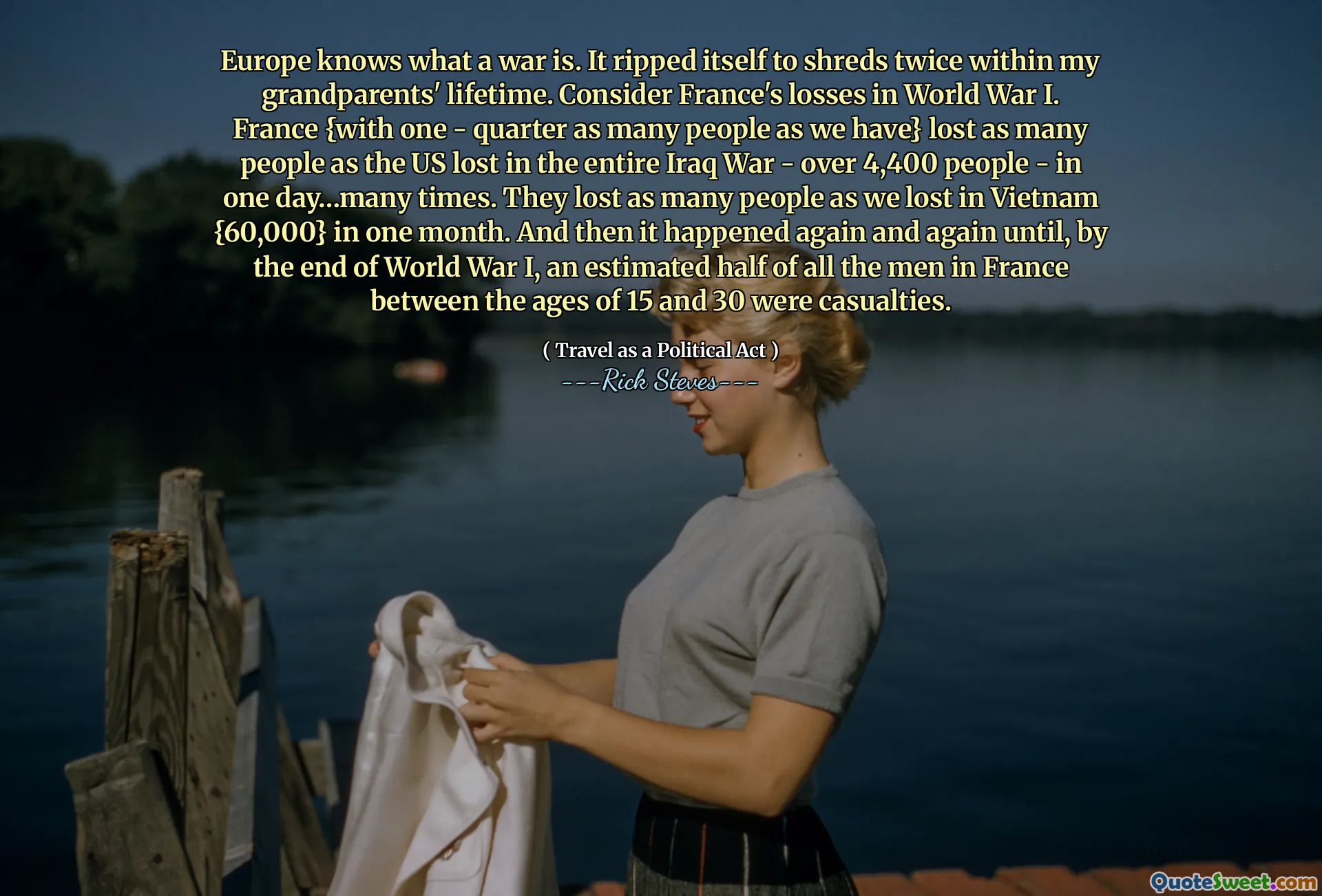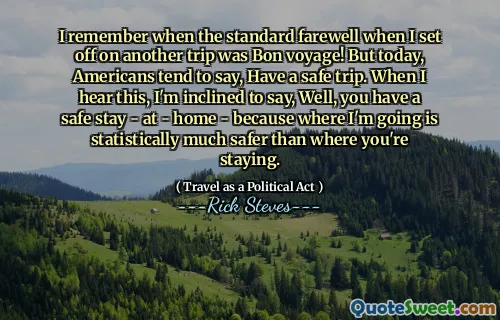
Europe knows what a war is. It ripped itself to shreds twice within my grandparents' lifetime. Consider France's losses in World War I. France {with one - quarter as many people as we have} lost as many people as the US lost in the entire Iraq War - over 4,400 people - in one day…many times. They lost as many people as we lost in Vietnam {60,000} in one month. And then it happened again and again until, by the end of World War I, an estimated half of all the men in France between the ages of 15 and 30 were casualties.
This quote encapsulates the devastating scale of warfare and its profound impact on nations, particularly Europe during the first half of the 20th century. Comparing the staggering French losses in World War I to more recent conflicts like the Iraq War and Vietnam War offers a powerful perspective on the human cost of war and the extent to which it shaped European society. The statement highlights not only the sheer numbers lost but also the tragic demographic impact, where an entire generation of young men—those between 15 and 30—were decimated. This kind of loss resonates deeply in understanding Europe's contemporary cultural and political outlook, especially its relative drive towards peace and unity post-World War II. It makes one reflect on how history and the collective experience of war teach societies valuable lessons about empathy, resilience, and the pursuit of diplomacy. The quote also implicitly challenges readers from other parts of the world to grasp the depth of war's consequences beyond headlines and statistics. By referencing the personal frame of the author's grandparents' generation, it evokes a sense of immediacy and personal connection to historical events that might otherwise feel distant. Ultimately, this quote from Rick Steves encourages us to travel not just physically but intellectually and emotionally in order to truly understand and appreciate the legacy of conflict and the hard-won peace that often follows.







